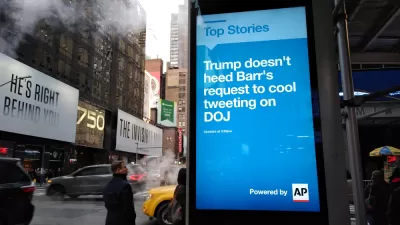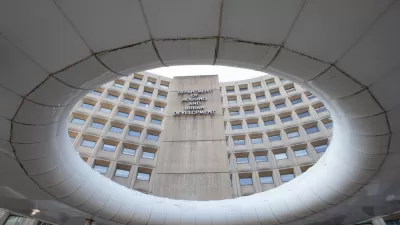A New York Times op-ed predicts that recent changes to Fair Housing could prompt unintended consequences—such as new support for the Republican Party among middle class white populations.
Thomas B. Edsall pens on op-ed arguing that two recent Fair Housing developments will test the allegiance of liberals. The two decisions—a Supreme Court decision to uphold the "Disparate Impact" doctrine and the new "Affirmatively Furthering Fair Housing" rule from the Department of Housing and Urban Development—will allow the federal government more authority in implementing the agenda of the Fair Housing Act of 1968.
According to Edsall's argument, the requirements for affluent, "predominantly white" communities to build more low-income and affordable housing "may drive some middle-income and other whites into the arms of the Republican Party." Edsall cites the example of Westchester County in New York, where a 2009 consent decree required 750 units of affordable housing for low-income blacks and Hispanics. Since that controversial decision, voters in this Democratic stronghold have twice elected a Republican as the county executive.
Speculating on the possibility of larger effects beyond the political blowback for Democrats, Edsall goes on to cite a 2007 essay by Robert Putnam in describing isolating and negative effects found in diverse neighborhoods. Finally, Edsall describes the beginning of political machinations by Republicans to capitalize on voter discontent with the recent Fair Housing changes.
FULL STORY: Who Will Pay the Political Price for Affordable Housing?

Maui's Vacation Rental Debate Turns Ugly
Verbal attacks, misinformation campaigns and fistfights plague a high-stakes debate to convert thousands of vacation rentals into long-term housing.

Planetizen Federal Action Tracker
A weekly monitor of how Trump’s orders and actions are impacting planners and planning in America.

San Francisco Suspends Traffic Calming Amidst Record Deaths
Citing “a challenging fiscal landscape,” the city will cease the program on the heels of 42 traffic deaths, including 24 pedestrians.

Defunct Pittsburgh Power Plant to Become Residential Tower
A decommissioned steam heat plant will be redeveloped into almost 100 affordable housing units.

Trump Prompts Restructuring of Transportation Research Board in “Unprecedented Overreach”
The TRB has eliminated more than half of its committees including those focused on climate, equity, and cities.

Amtrak Rolls Out New Orleans to Alabama “Mardi Gras” Train
The new service will operate morning and evening departures between Mobile and New Orleans.
Urban Design for Planners 1: Software Tools
This six-course series explores essential urban design concepts using open source software and equips planners with the tools they need to participate fully in the urban design process.
Planning for Universal Design
Learn the tools for implementing Universal Design in planning regulations.
Heyer Gruel & Associates PA
JM Goldson LLC
Custer County Colorado
City of Camden Redevelopment Agency
City of Astoria
Transportation Research & Education Center (TREC) at Portland State University
Jefferson Parish Government
Camden Redevelopment Agency
City of Claremont





























